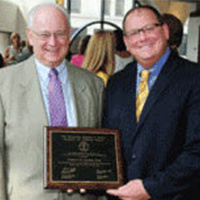Buffalo DUI-DWI Lawyer, New York
Sponsored Law Firm
-
 x
x

Click For More Info:
-
Cohen & Bernstein, L.L.C.
1360 Clifton Ave #309 Clifton, NJ 07012» view mapCriminal Defense We’re In this Together!
We work hand in hand with our clients to ensure all of your questions are answered and progress through your legal issue is seamless.
800-978-7341
Dominic Paul Candino
✓ VERIFIEDCriminal, DUI-DWI, Felony, Accident & Injury, Personal Injury
Personal injury and criminal law is a complex collection of ever-changing legislation and case law. Many of those injured by a third party's negligen... (more)
Karl Martin Myles
✓ VERIFIEDCriminal, DUI-DWI
My Web designer told me that I had to provide him with more information on myself to explain to people better who I am. Specifically he said for me to... (more)
Stephen Michael O'Neill
Dispute Resolution, Immigration, Estate, DUI-DWI
Status: In Good Standing Licensed: 31 Years
Terrence D. Mckelvey
Motor Vehicle, Employment, Divorce, DUI-DWI
Status: In Good Standing Licensed: 48 Years
Richard A. Grimm
Lawsuit & Dispute, Trusts, Estate, DUI-DWI
Status: In Good Standing Licensed: 66 Years
Neil Anthony Pawlowski
Estate, Divorce & Family Law, DUI-DWI, Criminal
Status: In Good Standing Licensed: 14 Years
Kyle Clark Didone
Real Estate, Government, DUI-DWI, Bankruptcy
Status: In Good Standing Licensed: 17 Years
 Lindsay Bernstein Clifton, NJ
Lindsay Bernstein Clifton, NJ Practice AreasExpertise
Practice AreasExpertise


